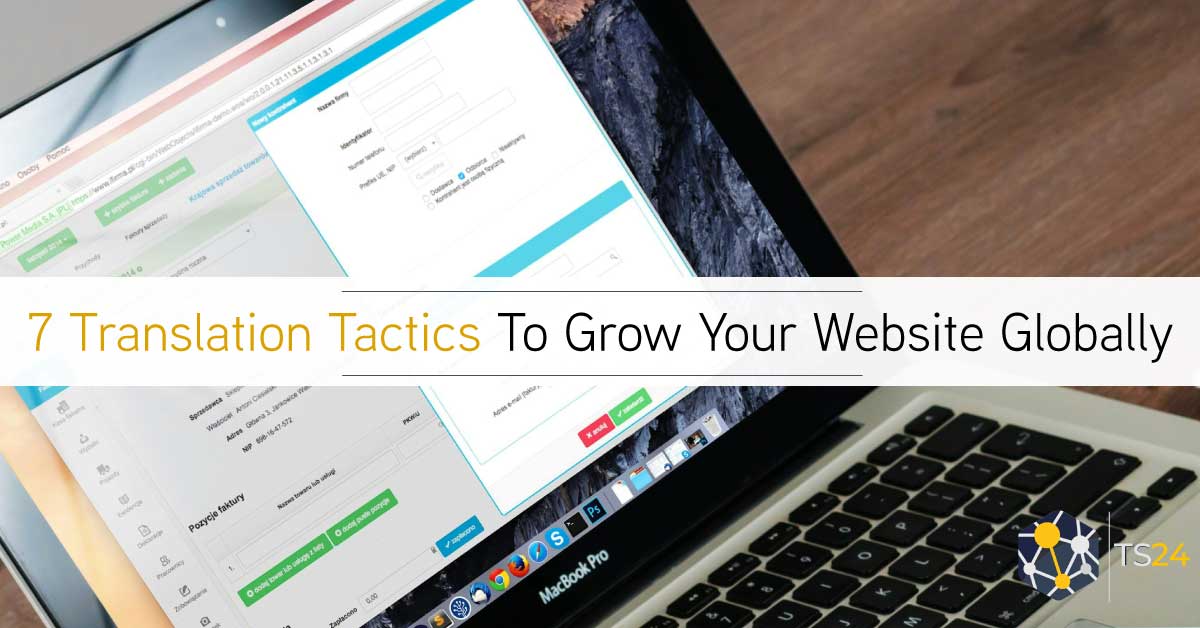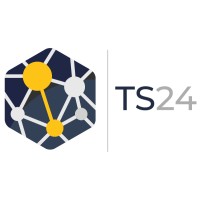7 Translation Tactics to Elevate Your Website Globally
Have you ever tried speaking a new language? You might have the words in your head, but once they leave your mouth, it’s like a game of linguistic charades, all in the wrong order.
You know exactly what you wanted to say, but everyone else… not so much! That’s precisely how bad translations are perceived. It’s like trying to say something but completely missing the mark.
Today’s digital market is about online visibility and SEO, and the best way to go about it is to get your website accurately translated into multiple languages. This way, you can reach out to a broader audience. But don’t forget, accuracy is the key.
That’s where professional translation services come in handy. Let’s look at how getting your site localised by an experienced translation services company can help you reach more people and improve your SEO in the process.
Table of Contents
-
- Why Translations Matter
- What is a Global SEO Strategy?
- Expand Your Keyword Reach
- Improve Your Domain Authority
- Reduce Competition in Global Markets
- Enhance User Experience (UX)
- Geotargeting and Localisation
- Boost Click-Through Rates (CTR)
- Don’t Just Translate—Localise the Content
- Frequently Asked Questions
- Conclusion
Why Translations Matter
The online marketplace is not just a place to showcase your product or service. It’s an ideal platform to bridge the physical gap between the sellers and buyers, helping you connect with a broad audience.
But translating your content is not about changing one word with another – especially if you intend to create a professional brand image and reach global audiences. It’s about adopting the whole culture and making your brand feel like it naturally belongs within the target market. Your audience shouldn’t feel like an alien has invaded their physical space. This is what we mean by becoming local when going global. Expert website translation services costs aren’t just an add-on cost or option anymore.
Opting for website translation services is no longer an option or an expense you need to think of. It is the key strategy we need for successful globalisation.
EXPERT’S TIP: Want to learn more about certified translations? Read our experts’ comprehensive and in-depth guide to understanding a certified translation.
What is a Global SEO Strategy?
SEO strategy is like an action plan. It optimises the resources and promotes content to improve visibility in the digital sphere.
It is a way to attract more traffic to your website. Whether you use keyword search, page optimisation, or technical SEO, all these will help build your online presence.
So, how does translation fit in here? Translating your website content means you’re not just opening up your site to different languages. You’re also making it easier for search engines to index and rank your pages across multiple regions. This makes the website more discoverable. A solid SEO strategy will increase the number of potential leads and clients.
Strategies to Improve the Website SEO Ranking.
Now, we will discuss how to create and implement effective SEO strategies. These will help improve your website ranking, resulting in a higher number of visitors.
1. Expand Your Keyword Reach
Every time you translate a webpage, you re-create your content. You use a different set of keywords, as every language has specific jargon or terms that are not translated word-for-word. This way, you optimise the content for the local market and attract higher traffic.
It also gives you the opportunity to use relevant keywords in other languages that are less saturated than the English language keywords. So, your visibility increases not just in one country but across the globe.
2. Improve Your Domain Authority
Search engines rank websites with valuable content in multiple languages higher. The more you translate your content, the easier it is to acquire backlinks from international websites.
Translating your content makes it more accessible to audiences in different countries, encouraging local websites and blogs to link to your site. This boosts your site’s authority and improves its search engine ranking across multiple regions.
That’s because native speakers from different countries are more likely to engage with content in their own language, making your products or services more relevant and accessible.
3. Reduce Competition in Global Markets
If your website is only in English, you’ll compete with many other businesses for the top rankings. This means there will be higher competition, and you’ll have to invest more effort to stand out.
However, if you offer content in multiple languages, you can also target less competitive markets. This way, you can reach and attract more regions and people. Note that targeting less competitive markets is not just about acquiring professional translation services but also strategic content planning.
4. Enhance User Experience (UX)
Of course, a multilingual website offers a better user experience. It is designed to make the content accessible, understandable, and relevant to different audiences, so people can easily read and browse the webpages. They also connect more with the content when it is presented in their own language.
The result? They’ll spend more time on your pages and better engage with your content and product or service. So, your average bounce rate goes down while the ranking goes up.
5. Geotargeting and Localisation
Another key strategy we can’t live without today is localising the content. Tailoring your website or content to different languages and regions helps search engines like Google understand which version of your site to show to which audience.
This boosts your local SEO, ensuring that users looking for content in their native language have a better experience on your web pages. As a result, you improve visibility, attract more relevant traffic, and create a more engaging experience for your international users.
6. Boost Click-Through Rates (CTR) on Search Engines
People are more likely to click on a search result in their language rather than in a foreign language. Translating your content and helping search engines show it to the right audience increases your chances of getting more clicks. A higher click-through rate (CTR) means your content is engaging and relevant to users, which boosts your visibility and improves your search rankings.
7. Don’t Just Translate—Localise the Content
Last, but not least, the most essential strategy is to localise the content. Don’t go word-for-word, but rather context-to-context. Remember, simple translations will not get you what you want today. Search engines only reward the localised content that resonates with the people.
EXPERT’S TIP: Are you looking for the best translation agency for your needs? Read our comprehensive guide to finding the best translation agencies in the UK.
This means you must now adapt the expressions and idioms to the local culture.
You should consider rewriting examples and instances tailored to particular regions or consumers.
By doing this, you’re not just translating, but you’re creating a genuine connection with your audience, which ultimately drives engagement and builds trust. Localise content in a way that feels natural to the target audience. It must show that you care about and respect their preferences and culture, and that can make all the difference in how they respond to your brand.
Frequently Asked Questions (FAQ)
| What are the benefits of translating my website? | Website translation improves SEO rankings, builds trust with international users, and helps you attract customers from multiple markets. |
| Is localisation different from translation? | Yes. Translation converts text into another language, while localisation adapts content to local culture, idioms, and preferences, making it feel natural to the audience. |
| Does website translation improve SEO? | Absolutely. Search engines rank multilingual and localised websites higher, improving visibility across multiple regions and languages. |
| How much do professional translation services cost? | Costs vary by language and document type. On average, professional translation services start from around £0.10 per word. |
| Why choose a certified translation agency? | Certified agencies, like TS24, guarantee accuracy, cultural sensitivity, and acceptance by official bodies worldwide. |
Conclusion
Today, translation is not just a requirement. It’s a powerful strategy if done the right way. It can help you stand out in the overly competitive market and also convert more customers from all around the world.
So, take the time to get it right. Treat it like it’s the key strategy to your business’s future (because, honestly, it is!)
By localising your content and speaking directly to your audience in their language, you’re not just opening doors to new markets but building trust and long-lasting relationships. That’s the kind of strategy that’ll actually pay off.
About TS24
Translation Services 24 (TS24) is a professional translation agency offering expert services in over 200 languages. We work with clients in all corporate and public industries and specialise in sector-specific linguistic solutions. With over a decade of experience in the industry, 15+ million words converted every year and 100,000+ projects completed, TS24 is a leading provider of expert translations and interpretation services and an officially certified member of the ATC. Contact TS24 here. You can also read all of our recent articles here.
Follow Translation Services 24 on Social Media






